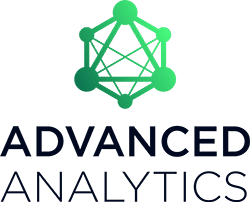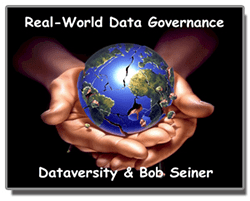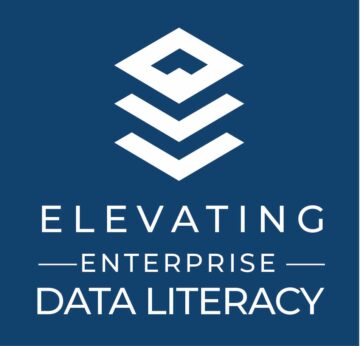

A data monetization strategy is an executable plan for extracting “value” from data and converting it into revenue-generating opportunities. It involves analyzing and leveraging data to uncover insights that can be used to drive business growth, enhance customer experiences, and create new revenue streams.
Organizations collect large volumes of raw data from various sources such as customer interactions, transactions, social media posts, or IoT devices. This data is then processed and analyzed using advanced analytical techniques like machine learning (ML) or predictive modeling. The insights gained from this analysis are generally used to make informed business decisions or develop innovative products and services. Additionally, organizations can monetize their data by selling it directly to third parties or by creating new data-driven products or services that cater to specific market needs.


Maximizing Data Value and Revenue Generation
Organizations are increasingly realizing the revenue potential of business data. However, to explore these additional data monetization opportunities, businesses need to identify the specific types of data that promise a high return on investment (ROI).
This involves analyzing internal datasets, customer information, market trends, and external sources of data to determine which datasets can be leveraged for monetization purposes. Once potential datasets have been identified, companies must assess the feasibility of extracting meaningful insights from the data. This may involve utilizing advanced analytics tools and technologies to uncover hidden patterns or correlations that can provide valuable insights for customers or partners.
Moreover, businesses need to understand their target audience and identify potential buyers or partners who may be interested in accessing or utilizing their data. By understanding the needs and preferences of these stakeholders, companies can tailor their offerings accordingly and maximize revenue generation.
Data Monetization Models and Strategies
Developing a successful data monetization strategy requires businesses to explore various models and strategies that can unlock the true potential of their data assets. One approach is direct monetization, where organizations sell their raw or processed data directly to interested parties. This model often involves licensing agreements or partnerships with other companies in need of specific datasets.
Another popular model is indirect monetization, which focuses on leveraging data to enhance existing products or create new ones.
Sharing and Integrating Insights for Mutual Benefits
By integrating valuable insights derived from their data into their offerings, businesses can increase customer satisfaction and generate additional revenue streams. Data sharing is an emerging strategy that enables organizations to exchange information with external entities in return for benefits such as access to complementary datasets or market intelligence. This collaborative approach fosters innovation and allows companies to tap into new markets while minimizing costs and risks.
Additionally, some businesses adopt a hybrid model by combining elements from direct, indirect, and shared monetization strategies. This approach allows them to maximize the value of their data assets by diversifying revenue streams and exploring multiple avenues for growth.
Leveraging Insights for Profit
A well-executed data monetization strategy involves not only collecting and analyzing vast amounts of information but also extracting actionable insights that can be sold to generate profit. By effectively leveraging these insights, companies can unlock new revenue streams and gain a competitive edge in the market.
Determining the value of these insights involves considering factors such as the uniqueness and relevance of the information, its potential impact on decision-making processes, and the target audience’s willingness to pay for it.
Effective pricing models may include one-time fees, subscription-based access, or tiered pricing based on usage levels. To successfully implement an effective pricing strategy, businesses must also ensure that their data insights are packaged in a way that is easily understandable and actionable for customers.
Data Monetization Methods for 2024
Data marketplace platforms: In 2024, the concept of data monetization is expected to reach new heights, as organizations increasingly recognize the value of their data assets. To capitalize on this trend, businesses are turning to data marketplace platforms as a means to buy and sell data securely and efficiently. These platforms offer a range of opportunities for both data providers and consumers, enabling them to collaborate in an ecosystem that fosters innovation.
One key opportunity presented by data marketplace platforms is the ability to access diverse datasets from various sources. This allows organizations to gain insights from a broader pool of information, leading to more comprehensive analysis and informed decision-making.
However, alongside these opportunities come several challenges that need careful consideration. Security and privacy concerns remain at the forefront when dealing with sensitive data. Ensuring robust encryption methods and compliance with regulations such as GDPR will be crucial for maintaining trust among participants in these marketplaces.
Customer data monetization: Monetizing customer data involves implementing effective strategies and adhering to best practices to maximize its value. One key approach is to ensure data privacy and security, as customers are increasingly concerned about the usage of their personal information. Companies must establish robust data protection measures, comply with regulations such as GDPR or CCPA, and obtain explicit consent for data collection and utilization.
Another strategy is to leverage advanced analytics techniques to derive valuable insights from customer data. By employing ML algorithms, predictive modeling, and artificial intelligence, businesses can uncover patterns, preferences, and trends. These insights enable personalized marketing campaigns that resonate with individual customers, leading to increased engagement and conversion rates.
Joint ventures or partnerships can facilitate the exchange of anonymized customer data in a mutually beneficial manner. Also, offering customers tangible incentives for sharing their data can enhance monetization efforts.
Blockchain-based data monetization: Blockchain technology is revolutionizing how data is monetized by enhancing security and trust in the digital ecosystem. Blockchain, a decentralized and immutable ledger, provides a robust infrastructure for securely storing and transferring data, making it an ideal solution for data monetization.
Additionally, every transaction recorded on the blockchain is encrypted and linked to previous transactions through cryptographic hash functions, further safeguarding the integrity of the data. By leveraging smart contracts – self-executing agreements stored on the blockchain – parties involved in data transactions can establish predefined rules and conditions that are automatically enforced without intermediaries. This eliminates the need for third-party intermediaries or trusted authorities, reducing costs and increasing transparency.
Data-as-a-service business models: Data-as-a-service (DaaS) business models are set to play a pivotal role in unlocking the value of information in 2024. As organizations increasingly recognize the potential of their data, DaaS offers a unique opportunity to monetize this valuable asset.
By providing access to high-quality and curated datasets, DaaS enables businesses to tap into new revenue streams and gain a competitive edge. One key aspect of DaaS is its ability to aggregate and package data from multiple sources, ensuring that it is easily accessible and ready for analysis.
This eliminates the need for organizations to invest heavily in data infrastructure, thereby reducing costs and time-to-market. Additionally, DaaS providers can offer value-added services such as data cleansing, enrichment, and analytics tools that further enhance the usability of the datasets. DaaS business models can cater to a wide range of industries and use cases from healthcare and finance to marketing and logistics.
Location-based information monetization: The monetization of location-based information is also expected to witness significant growth and innovation. Geospatial data, which encompasses various forms of location-based information, presents immense opportunities for businesses to generate profits by leveraging its potential.
One method of monetizing geospatial data involves offering targeted advertising solutions based on precise user locations. By analyzing users’ real-time whereabouts and preferences, businesses can deliver personalized advertisements that are more likely to engage customers and drive sales.
Additionally, geospatial data can be utilized to optimize logistics and supply chain operations by providing valuable insights into traffic patterns, transportation routes, and customer proximity.
The integration of geospatial data with other sources such as social media platforms can unlock new revenue streams.
Data monetization for personalized marketing: Companies are increasingly capitalizing on the power of customer data to drive personalized marketing strategies. With the advent of advanced analytics and AI technologies, businesses have gained unprecedented insights into consumer behavior, enabling them to deliver highly targeted and relevant marketing campaigns. Personalized marketing has become a cornerstone for many organizations as it allows them to tailor their offerings based on individual preferences, interests, and purchasing habits.
To monetize customer data effectively, businesses are employing various strategies. Collaborations with third-party advertisers and marketers have become more prevalent as companies leverage their vast databases to offer valuable insights into consumer segments. These partnerships allow advertisers to refine their targeting efforts while generating additional revenue streams for the data-owning companies.
Predictive analytics for data utilization and monetization: In the rapidly evolving landscape of data monetization, organizations are increasingly realizing the value of predictive analytics in effectively utilizing and monetizing their data assets. Predictive analytics can be instrumental in developing data-driven monetization strategies. By identifying opportunities for new revenue streams or optimizing existing ones based on predictive models’ outcomes, companies can unlock significant value from their data assets.
For instance, it can help businesses optimize pricing strategies by determining the optimal price points for various customer segments or identify cross-selling opportunities based on customers’ purchase patterns.
Navigating ethical data monetization: Data monetization strategies have become an integral part of business operations, enabling companies to derive value from the vast amounts of data they collect. However, as organizations strive to leverage this data for personalized marketing, they must also navigate the ethical challenges posed by data privacy regulations.
Balancing personalized marketing with data privacy regulations requires a delicate approach. Companies must prioritize obtaining explicit consent from users before collecting and using their personal information.
Data Monetization Strategy: The Framework
Here is a definitive guide to developing a successful data monetization strategy for 2024:
- Take stock of your internal data and evaluate the financial worth of datasets.
- Take stock of external data and identify gaps.
- Identify the potential buyers or monetization channels for your data assets.
- Collaborate with startups through contracts to learn from their data strategies.
- Look for market solutions for Data Management instead of relying on home-grown tools.
- Customer data is key to personalized marketing. So, collect and analyze as much customer data as possible for competitive advantage.
- Cultivate support from top management and then work your way down to the entire business to stress the need for data monetization through strategy.
- Set goals and communicate goals early on to avoid confusion or disagreements later.
- Recognize the technology challenges such as data overload, data cleansing, data delivery methods, and networking issues.
- Conduct in-depth cost analysis and potential ROI from the data monetization exercise.
- Assess the legal and taxation implications of selling data.
- Execution is the most difficult phase so a gradual “trial and error” approach may be prudent.
- SEO Powered Content & PR Distribution. Get Amplified Today.
- PlatoData.Network Vertical Generative Ai. Empower Yourself. Access Here.
- PlatoAiStream. Web3 Intelligence. Knowledge Amplified. Access Here.
- PlatoESG. Carbon, CleanTech, Energy, Environment, Solar, Waste Management. Access Here.
- PlatoHealth. Biotech and Clinical Trials Intelligence. Access Here.
- Source: https://www.dataversity.net/creating-a-data-monetization-strategy/
- :has
- :is
- :not
- :where
- 2024
- 224
- 300
- a
- ability
- About
- access
- accessible
- accessing
- accordingly
- actionable
- Ad
- Additional
- Additionally
- adhering
- adopt
- advanced
- ADvantage
- advent
- advertisers
- Advertising
- aggregate
- agreements
- AI
- algorithms
- allow
- allows
- alongside
- also
- among
- amounts
- an
- analysis
- Analytical
- analytics
- analyze
- analyzed
- analyzing
- and
- approach
- ARE
- artificial
- artificial intelligence
- AS
- aspect
- assess
- asset
- Assets
- At
- audience
- Authorities
- automatically
- avenues
- avoid
- based
- BE
- become
- been
- before
- behavior
- beneficial
- benefits
- BEST
- best practices
- blockchain
- both
- broader
- business
- business models
- business operations
- businesses
- but
- buy
- buyers
- by
- Campaigns
- CAN
- capitalize
- capitalizing
- careful
- cases
- cater
- CCPA
- chain
- challenges
- channels
- collaborate
- collaborations
- collaborative
- collect
- Collecting
- collection
- combining
- come
- communicate
- Companies
- competitive
- complementary
- compliance
- comply
- comprehensive
- concept
- concerned
- Concerns
- conditions
- confusion
- consent
- consideration
- considering
- consumer
- consumer behavior
- Consumers
- contracts
- Conversion
- converting
- cornerstone
- correlations
- Cost
- Costs
- create
- Creating
- crucial
- cryptographic
- curated
- customer
- customer data
- customer information
- Customer satisfaction
- Customers
- daas
- data
- data infrastructure
- data management
- data monetization
- data privacy
- data protection
- data sharing
- data-driven
- databases
- datasets
- DATAVERSITY
- dealing
- decentralized
- Decision Making
- decisions
- definitive
- deliver
- delivery
- delivery methods
- derive
- Derived
- Determine
- determining
- develop
- developing
- Devices
- difficult
- digital
- digital ecosystem
- direct
- directly
- disagreements
- diverse
- diversifying
- down
- drive
- Early
- easily
- ecosystem
- Edge
- Effective
- effectively
- efficiently
- efforts
- elements
- eliminates
- emerging
- employing
- enable
- enables
- enabling
- encompasses
- encrypted
- encryption
- enforced
- engage
- engagement
- enhance
- enhancing
- enrichment
- ensure
- ensuring
- Entire
- entities
- establish
- Ether (ETH)
- ethical
- evaluate
- Event
- Every
- evolving
- exchange
- Exercise
- existing
- expected
- Experiences
- explore
- Exploring
- external
- facilitate
- factors
- feasibility
- Fees
- finance
- financial
- focuses
- For
- forefront
- forms
- fosters
- from
- functions
- further
- Gain
- gained
- gaps
- GDPR
- generally
- generate
- generating
- generation
- Goals
- gradual
- Growth
- guide
- habits
- hash
- Have
- healthcare
- heavily
- heights
- help
- Hidden
- High
- high-quality
- highly
- How
- However
- http
- HTTPS
- Hybrid
- hybrid model
- ideal
- identified
- identify
- identifying
- immense
- immutable
- Impact
- implement
- implementing
- implications
- in
- in-depth
- Incentives
- include
- Increase
- increased
- increasing
- increasingly
- individual
- industries
- information
- informed
- Infrastructure
- Innovation
- innovative
- Insider
- insights
- instance
- instead
- instrumental
- integral
- Integrating
- integration
- integrity
- Intelligence
- interactions
- interested
- interests
- intermediaries
- internal
- into
- Invest
- investment
- involve
- involved
- involves
- issues
- IT
- ITS
- Key
- landscape
- large
- later
- leading
- LEARN
- learning
- Ledger
- Legal
- levels
- Leverage
- leveraged
- leveraging
- Licensing
- like
- likely
- linked
- Location-Based
- locations
- logistics
- machine
- machine learning
- make
- Making
- management
- manner
- many
- Market
- Market Trends
- marketers
- Marketing
- Marketing Campaigns
- Marketing Strategies
- marketplace
- marketplaces
- Markets
- max-width
- Maximize
- May..
- meaningful
- means
- measures
- Media
- method
- methods
- minimizing
- ML
- ML algorithms
- model
- modeling
- models
- monetization
- monetize
- more
- most
- much
- multiple
- must
- mutual
- mutually
- Navigate
- Need
- needs
- networking
- New
- obtain
- obtaining
- of
- offer
- offering
- Offerings
- Offers
- often
- on
- once
- ONE
- ones
- only
- Operations
- opportunities
- Opportunity
- optimal
- Optimize
- optimizing
- or
- organizations
- Other
- outcomes
- package
- packaged
- part
- parties
- partners
- partnerships
- patterns
- Pay
- personal
- personal information
- Personalized
- phase
- pivotal
- plan
- Platforms
- plato
- Plato Data Intelligence
- PlatoData
- Play
- points
- pool
- Popular
- posed
- possible
- Posts
- potential
- power
- practices
- precise
- predictive
- Predictive Analytics
- preferences
- presented
- presents
- prevalent
- previous
- price
- pricing
- Prioritize
- privacy
- processed
- processes
- Products
- Products and Services
- Profit
- profits
- promise
- protection
- provide
- providers
- provides
- providing
- prudent
- purchase
- purchasing
- purposes
- range
- rapidly
- Rates
- Raw
- raw data
- reach
- ready
- real-time
- realizing
- recognize
- recorded
- reducing
- refine
- regulations
- relevance
- relevant
- relying
- remain
- requires
- Resonate
- return
- revenue
- Revolutionizing
- risks
- robust
- ROI
- Role
- routes
- rules
- safeguarding
- sales
- satisfaction
- securely
- security
- segments
- sell
- Selling
- sensitive
- Services
- set
- several
- shared
- sharing
- significant
- smart
- Smart Contracts
- So
- Social
- social media
- social media platforms
- Social Media Posts
- sold
- solution
- Solutions
- some
- Sources
- specific
- stakeholders
- Startups
- stock
- stored
- storing
- strategies
- Strategy
- streams
- stress
- strive
- successful
- Successfully
- such
- supply
- supply chain
- support
- tailor
- tangible
- Tap
- Target
- targeted
- targeting
- Taxation
- techniques
- Technologies
- Technology
- that
- The
- the information
- their
- Them
- then
- thereby
- These
- they
- Third
- third parties
- third-party
- this
- Through
- to
- tools
- top
- traffic
- transaction
- Transactions
- Transferring
- Transparency
- transportation
- Trend
- Trends
- true
- Trust
- trusted
- Turning
- types
- uncover
- understand
- understandable
- understanding
- unique
- uniqueness
- unlock
- unlocking
- unprecedented
- usability
- Usage
- use
- used
- User
- users
- using
- utilization
- utilized
- Utilizing
- Valuable
- value
- various
- Vast
- Ventures
- viewed
- volumes
- Way..
- when
- which
- while
- WHO
- wide
- Wide range
- will
- Willingness
- with
- without
- witness
- Work
- worth
- Your
- zephyrnet











